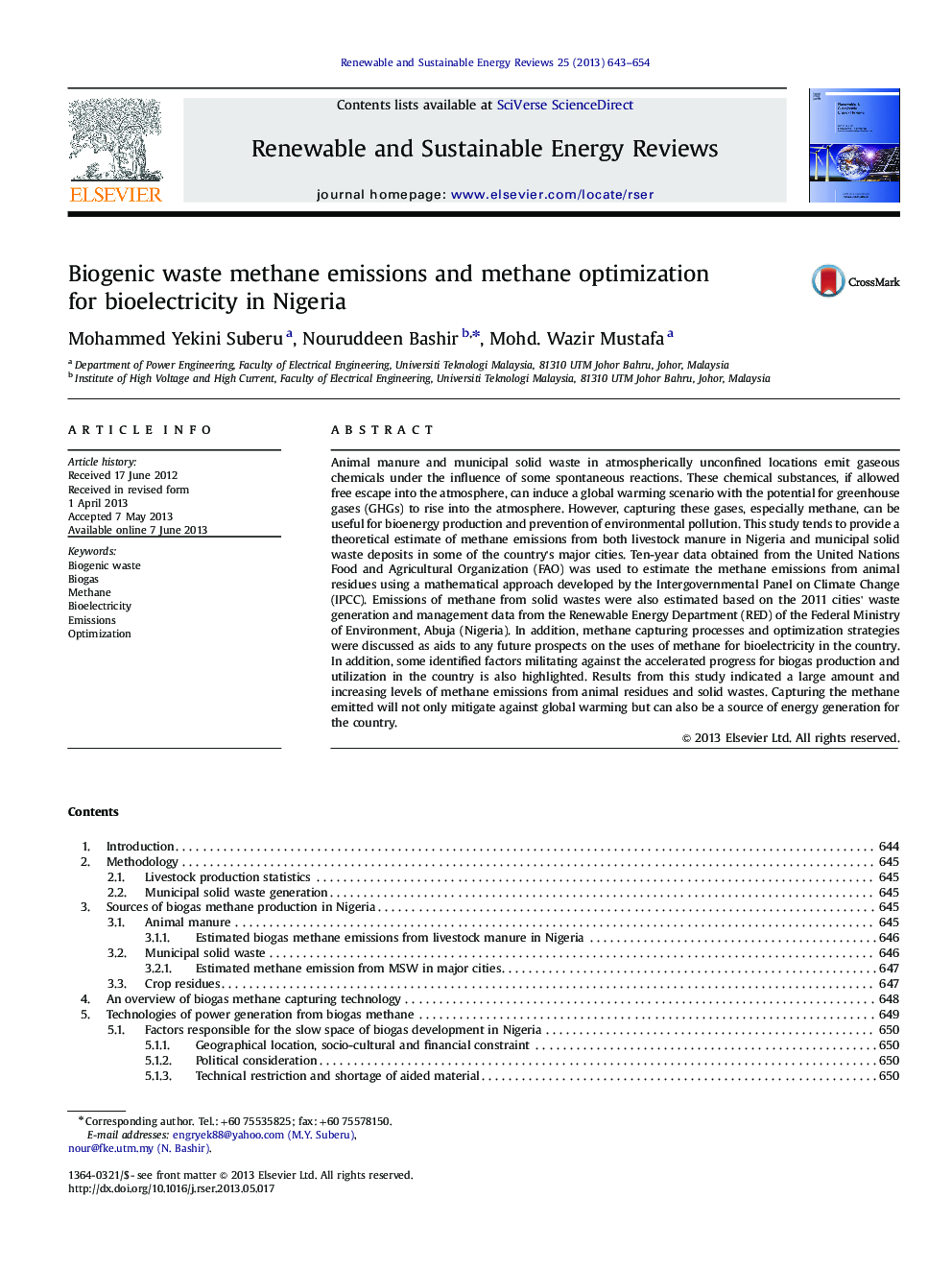| Article ID | Journal | Published Year | Pages | File Type |
|---|---|---|---|---|
| 8121790 | Renewable and Sustainable Energy Reviews | 2013 | 12 Pages |
Abstract
Animal manure and municipal solid waste in atmospherically unconfined locations emit gaseous chemicals under the influence of some spontaneous reactions. These chemical substances, if allowed free escape into the atmosphere, can induce a global warming scenario with the potential for greenhouse gases (GHGs) to rise into the atmosphere. However, capturing these gases, especially methane, can be useful for bioenergy production and prevention of environmental pollution. This study tends to provide a theoretical estimate of methane emissions from both livestock manure in Nigeria and municipal solid waste deposits in some of the country's major cities. Ten-year data obtained from the United Nations Food and Agricultural Organization (FAO) was used to estimate the methane emissions from animal residues using a mathematical approach developed by the Intergovernmental Panel on Climate Change (IPCC). Emissions of methane from solid wastes were also estimated based on the 2011 cities' waste generation and management data from the Renewable Energy Department (RED) of the Federal Ministry of Environment, Abuja (Nigeria). In addition, methane capturing processes and optimization strategies were discussed as aids to any future prospects on the uses of methane for bioelectricity in the country. In addition, some identified factors militating against the accelerated progress for biogas production and utilization in the country is also highlighted. Results from this study indicated a large amount and increasing levels of methane emissions from animal residues and solid wastes. Capturing the methane emitted will not only mitigate against global warming but can also be a source of energy generation for the country.
Related Topics
Physical Sciences and Engineering
Energy
Renewable Energy, Sustainability and the Environment
Authors
Mohammed Yekini Suberu, Nouruddeen Bashir, Mohd. Wazir Mustafa,
